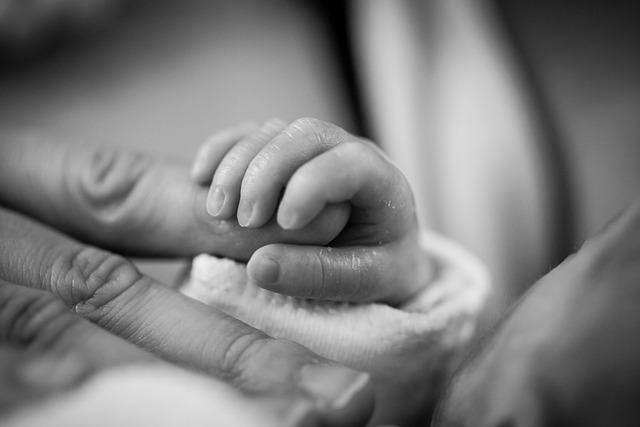In a multicultural UK, accurate birth certificate translations are vital for legal and civic access. Strict standards require qualified translators with bilingual proficiency to ensure authenticity and validity for official uses like passports and education. Reputable language services providers specialize in this field, employing certified experts who understand legal nuances and cultural appropriateness, ensuring reliable translations accepted by official bodies. This service is crucial for non-English speakers to participate fully in UK society.
In today’s globalized world, accurate birth certificate translation services are more crucial than ever. When it comes to official documents like birth certificates, language barriers can have significant implications. This article explores the importance of precise translations for birth certificates in multiple languages, focusing on the UK context. We’ll delve into legal requirements, the selection of reliable language service providers, the translation and certification process, and the benefits and challenges associated with offering birth certificate translations in diverse languages.
- Understanding the Importance of Accurate Translation for Birth Certificates
- The Legal Requirements for Official Birth Certificate Translations in the UK
- Choosing the Right Language Services Provider for Your Birth Certificate Translation
- The Process of Translating and Certifying Birth Certificates
- Benefits and Challenges of Multiple-Language Support for Birth Certificates
Understanding the Importance of Accurate Translation for Birth Certificates

Accurate birth certificate translation is paramount, especially in an increasingly globalised society where families often move across borders or have multilingual backgrounds. In countries like the UK, where official documents must be precise and legally recognised, professional translation services play a vital role. The stakes are high when it comes to birth certificates—a crucial document for individuals throughout their lives.
Inaccurate translations can lead to severe consequences, from issues with legal procedures, such as applying for passports or visas, to challenges in accessing healthcare and educational opportunities. Therefore, families must ensure that their birth certificates are translated by qualified professionals who understand not just the languages involved but also the nuances and cultural contexts of the documents. This is particularly important for the UK, where official translations need to comply with specific legal standards and requirements.
The Legal Requirements for Official Birth Certificate Translations in the UK

In the UK, official birth certificate translations are subject to stringent legal requirements to ensure accuracy and authenticity. When it comes to birth certificate translation UK, only qualified translators who are fluent in both English and the target language(s) can handle these documents. They must adhere to specific guidelines set by the UK government, which includes using approved translation services that can provide certified translations.
The process involves verifying the original birth certificate’s content and then translating it into one or more languages accurately. The translated document must be an exact replica of the original in terms of format, information, and legal validity. Furthermore, a signed and sealed certification from a professional translator or a recognized translation agency is often required to validate the translated birth certificate for official use.
Choosing the Right Language Services Provider for Your Birth Certificate Translation

When it comes to translating official birth certificates, choosing the right language services provider is paramount to ensure accuracy and legal validity. In the UK, where diverse linguistic needs exist, finding a reputable and experienced translation company is essential. Look for providers who specialise in document translation and have a proven track record, especially when dealing with sensitive personal documents like birth certificates.
Reputable firms will employ certified translators who are not only fluent in both the source and target languages but also understand the nuances of legal documentation. They should adhere to strict quality control measures and offer translations that are not just word-for-word but also culturally appropriate, ensuring your birth certificate translation is accepted without issue by official bodies.
The Process of Translating and Certifying Birth Certificates

The process of translating and certifying birth certificates involves several critical steps to ensure accuracy and legal validity. In the UK, for instance, a professional translation service is engaged to render the document into the desired language(s). Translators, often language experts with legal or medical backgrounds, meticulously examine the original certificate to grasp its nuances. They then produce an accurate and faithful rendition, ensuring that all essential details—from names and dates to medical entries—are correctly translated.
Once translation is complete, a certification step is necessary. In many cases, an official seal or signature from a recognized authority, such as a legal professional or government agency, is required. This certification attests to the authenticity of the translation, making it legally acceptable for official purposes. The process demands precision and adherence to local laws and regulations, especially when dealing with sensitive personal information.
Benefits and Challenges of Multiple-Language Support for Birth Certificates

The introduction of multiple-language support for official birth certificates in the UK brings numerous benefits, especially for diverse communities. This initiative ensures that families from various cultural and linguistic backgrounds can access their vital documentation in a language they understand, promoting inclusivity and accessibility. For instance, in an increasingly multicultural society, non-English speakers can now easily verify their citizenship and legal identity, fostering a sense of belonging and participation in civic life.
However, implementing this service presents several challenges. Accurate and certified translation is crucial to maintain the integrity of legal documents. Ensuring that translators are qualified, experienced, and culturally sensitive is essential to avoid potential errors or omissions that could compromise the validity of birth certificates. Moreover, managing a wide range of languages demands significant resources and expertise, including staying updated with linguistic variations and regional dialects, which can be complex and time-consuming.
In conclusion, the demand for accurate and official birth certificate translations in multiple languages is on the rise, especially with global migration and diverse communities. The UK’s legal requirements ensure authenticity and accuracy, but choosing the right language services provider is key. By understanding the process and benefits of multiple-language support, parents can ensure their child’s birth certificate translation is reliable and accessible to all. This facilitates smoother official procedures and honours the multicultural fabric of modern society, with birth certificate translations UK playing a vital role in this diverse landscape.
